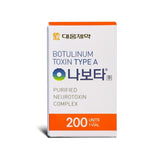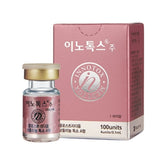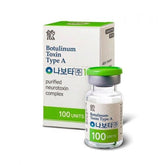Understanding the Difference Between Natural and Organic Cosmetics

Understanding the Difference Between Natural and Organic Cosmetics. In recent years, there has been a significant shift towards more sustainable and healthier lifestyle choices, including the beauty products we use. As consumers become more conscious about what they put on their skin, terms like "natural" and "organic" cosmetics have gained popularity. However, understanding the difference between natural and organic cosmetics can be confusing. This blog post aims to clarify these terms and help you make informed decisions about the products you choose.
What Are Natural Cosmetics?
Natural cosmetics are products made from ingredients found in nature. These ingredients can include plant extracts, minerals, and animal-derived substances like beeswax. The primary goal of natural cosmetics is to utilize ingredients that are not synthetic or chemically processed. However, the term "natural" is not strictly regulated, which means that products labeled as natural can still contain a mix of natural and synthetic ingredients.
Key Characteristics of Natural Cosmetics:
- Derived from Nature: Natural cosmetics use ingredients that are derived from plants, minerals, and sometimes animals.
- Minimal Processing: The ingredients are minimally processed to retain their natural properties.
- Limited Regulation: The term "natural" is not legally defined or strictly regulated, allowing for some variation in the ingredients used.
What Are Organic Cosmetics?
Organic cosmetics go a step further by not only using natural ingredients but also ensuring that these ingredients are grown and processed according to strict guidelines. Organic farming avoids the use of synthetic pesticides, herbicides, and genetically modified organisms (GMOs). Organic cosmetics are certified by regulatory bodies that set standards for organic labeling.
Key Characteristics of Organic Cosmetics:
- Certified Ingredients: Organic cosmetics must contain a certain percentage of certified organic ingredients.
- No Synthetic Chemicals: These products are free from synthetic pesticides, herbicides, and GMOs.
- Strict Standards Organic cosmetics are regulated and must meet specific standards set by certification bodies like USDA Organic, COSMOS, or Ecocert.
The Benefits of Natural Cosmetics
Using natural cosmetics has several benefits, primarily due to their use of ingredients that are closer to their original form. These benefits include:
- Fewer Irritants: Natural ingredients are generally less likely to cause irritation or allergic reactions.
- Environmental Impact: Natural cosmetics often have a smaller environmental footprint because they avoid synthetic chemicals.
- Nutrient-Rich: Ingredients in natural cosmetics often retain more vitamins, minerals, and antioxidants, which can benefit the skin.
The Benefits of Organic Cosmetics
Organic cosmetics offer additional benefits beyond those of natural products, thanks to their rigorous production standards:
- Purity: Organic products are free from harmful synthetic chemicals, making them safer for sensitive skin.
- Sustainability: Organic farming practices are better for the environment, promoting soil health and reducing pollution.
- Ethical Standards: Organic certification often includes ethical standards for labor and animal welfare.
How to Identify Natural and Organic Cosmetics
Given the lack of strict regulations for the term "natural," it's essential to read labels carefully to understand what you're buying. Here are some tips for identifying natural and organic cosmetics:
- Check the Ingredients: Look for a short list of recognizable ingredients. Avoid products with long lists of chemicals or synthetic additives.
- Look for Certifications: For organic cosmetics, look for certification logos such as USDA Organic, COSMOS, or Ecocert. These certifications indicate that the product meets stringent organic standards.
- Research Brands: Some brands are more transparent about their ingredients and production processes. Researching a brand's reputation can help you make informed decisions.
Common Misconceptions
Understanding the difference between natural and organic cosmetics also involves dispelling some common misconceptions:
- Natural and Organic Are the Same: While both aim to use fewer synthetic ingredients, organic cosmetics adhere to stricter guidelines and certifications.
- All-Natural Products Are Safe: Natural ingredients can still cause allergic reactions or irritations in some people. Always patch-test new products.
- Organic Cosmetics Are Always Better: Organic products are better for the environment and often safer, but they may not always be the best choice for every skin type or concern.
Making the Right Choice
Choosing between natural and organic cosmetics depends on your personal preferences, skin type, and ethical considerations. Here are some factors to consider:
- Skin Sensitivity: If you have sensitive skin, organic products may be a better choice due to their strict avoidance of synthetic chemicals.
- Environmental Concerns: If environmental sustainability is a priority, organic products are the way to go, thanks to their eco-friendly farming practices.
- Budget: Organic products can be more expensive due to the cost of certification and organic farming. Natural products might offer a more budget-friendly alternative while still reducing exposure to synthetic chemicals.
Understanding the difference between natural and organic cosmetics is crucial for making informed choices about your beauty products. While both types of cosmetics aim to use fewer synthetic ingredients, organic products adhere to stricter standards and certifications, ensuring purity and sustainability. By carefully reading labels, checking for certifications, and considering your personal needs and values, you can select the products that are best suited to your lifestyle.
Embracing natural and organic cosmetics can lead to healthier skin and a reduced environmental impact. Whether you opt for natural or organic, being informed about what goes into your beauty products is the first step towards a more conscious and sustainable beauty routine.





